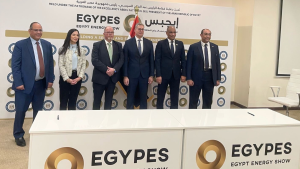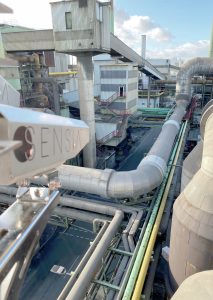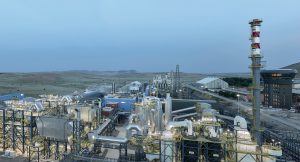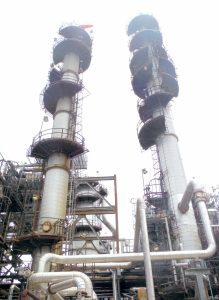
MOPCO invests in carbon capture at Damietta
MOPCO has selected thyssenkrupp Uhde to supply advanced technology for its Damietta ammonia-urea complex in Egypt.

MOPCO has selected thyssenkrupp Uhde to supply advanced technology for its Damietta ammonia-urea complex in Egypt.

Fertilizer International presents a global round-up of phosphate rock, phosphoric acid and finished phosphates projects.
NextChem (Maire) is awarded a three-year engineering and technology services contract by Satorp in Saudi Arabia to improve energy efficiency and carbon footprint

Carbon Recycling International (CRI), which operates a geothermally powered green methanol plant at Svartsengi, 40km southwest of Reykjavik, had to evacuate its site in late November when a 3km fissure opened in the earth a few kilometres away and lava began spilling across adjacent land. Satellite photos of the area taken on November 24 show a large field of molten and cooled lava to the north, west, and south of Svartsengi, though the plant itself remained undamaged. CRI’s Iceland facility runs on CO2 , water, and renewable electricity from the Svartsengi geothermal power station. CRI says the low-carbon energy source allows it to produce 4,000 t/a of methanol with a greenhouse gas footprint just 10–20% that of conventional methanol.

OCI Global says that it has reached an agreement for the sale of 100% of its equity interests in its Clean Ammonia project currently under construction in Beaumont, Texas for $2.35 billion on a cash and debt free basis. The buyer is Australian LNG and energy company Woodside Energy Group Ltd. Woodside will pay 80% of the purchase price to OCI at closing of the transaction, with the balance payable at project completion, according to agreed terms and conditions. OCI will continue to manage the construction, commissioning and startup of the facility and will continue to direct the contractors until the project is fully staffed and operational, at which point it will hand it over to Woodside. The transaction is expected to close in H2 2024, subject to shareholder approval.

Optical gas imaging technology, enhanced by artificial intelligence, offers a groundbreaking approach to monitoring SO2 emissions in real time. Andrés Russu of SENSIA introduces SENSIA’s RedLook solution which offers fully autonomous, 24/7 continuous monitoring of SO2 leaks, providing industries with the tools they need to maintain environmental integrity and operational safety.

One of the biggest areas for new sulphuric acid demand in the past few years has been in nickel processing plants, particularly in Indonesia. A decade ago, incoming president Joko Widodo took a strategic decision that the country needed to try and capture more of the value chain from its mining and mineral industry, which was focused at the time on exports of aluminium, copper and nickel ores and concentrates, mainly to China. Over the past 10 years, the export of raw ores has been progressively restricted and companies instead compelled to build downstream processing plants for the metals. With China the main recipient of Indonesian ores, much of the investment in metals processing in Indonesia has been via Chinese companies.

As more focus extends to a circular economy, there are industry wide discussions on whether future global sulphur demand will be challenged by the energy transition and decarbonisation. Hannes Storch, Collin Bartlett and Marcus Runkel of Metso discuss how the recycling of pyrite tailings could address some of these issues.

Refinery sour water strippers are an often overlooked resource of low GWP ammonia. Martin A. Taylor and Charles L. Kimtantas of Bechtel Energy Technologies and Solutions, Inc. (BETS) show the results of a study on reusing an existing SWS as one of the major systems in a SWSPlus unit for the recovery of ammonia for sale. Relative cost factors will compare a complete SWSPlus unit versus reusing an existing SWS.
Join us at the CRU Sulphur + Sulphuric Acid 2024 Conference and Exhibition in Barcelona, 4-6 November, for a global gathering of the sulphur and sulphuric acid community. Meet leading market and technology experts and producers, network, share knowledge, and learn about market trends and the latest developments in operations, process technology and equipment.